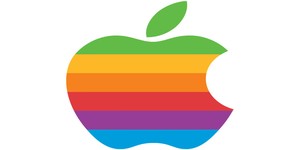Apple drops Imagination's PowerVR tech
April 3, 2017 | 09:55
Companies: #apple #imagination-technologies

Imagination Technologies has been dealt a bitter blow by Apple, with the latter informing the company that it no longer requires its graphics technology, indicating it has either completed the work required to bring its GPU tech in-house or is switching to a different supplier.
Having made its fortunes supplying the graphics technology for Sega's ill-fated Dreamcast console - 'we built this company, you know, on the success of the Dreamcast,' Imagination's David Harold claimed in a 2013 interview, 'the ten or twelve million Dreamcasts that were sold really were what gave us the wherewithall to develop our graphics technologies and everything that's come since,' - Imagination pivoted from desktop and console graphics technology to the embedded world. Its PowerVR graphics technology is a popular choice for high-performance smartphone and tablet devices, but the company has received notice that one of its biggest customers is walking: Apple.
'Imagination Technologies Group [...] has been notified by Apple Inc. (“Apple”), its largest customer, that Apple is of a view that it will no longer use the Group’s intellectual property in its new products in 15 months to two years time, and as such will not be eligible for royalty payments under the current license and royalty agreement,' a press release from the company published early this morning warns - putting a £65 million hole in the company's balance sheet in lost royalties and licensing fees.
The impact of the announcement was immediate and obvious: Imagination's share price has plummeted nearly 65 percent as antsy investors pull their money from a company that has just lost one of its biggest customers. Imagination, though, has vowed to fight: 'Apple has not presented any evidence to substantiate its assertion that it will no longer require Imagination’s technology, without violating Imagination’s patents, intellectual property and confidential information. This evidence has been requested by Imagination but Apple has declined to provide it,' the company's statement continues, indicating that it believes Apple will still need to licence selected Imagination patents even if using in-house or third-party GPU technology in its future products. 'Further, Imagination believes that it would be extremely challenging to design a brand new GPU architecture from basics without infringing its intellectual property rights, accordingly Imagination does not accept Apple’s assertions.'
That Apple has been interested in reducing its reliance on third parties for its flagship mobile products is no secret: back in 2013 the company hired former AMD staffers to work on a GPU technology engineering team, apparently in an effort to do for its chips' GPUs what it has already done with its mobile CPUs and do the bulk of the development in-house. In 2016, it was even reported that Apple was considering purchasing Imagination Technologies outright, though no deal followed.
Apple has not publicly commented on the reasoning behind the move, nor on Imagination's beliefs that patent licensing will still apply.
Having made its fortunes supplying the graphics technology for Sega's ill-fated Dreamcast console - 'we built this company, you know, on the success of the Dreamcast,' Imagination's David Harold claimed in a 2013 interview, 'the ten or twelve million Dreamcasts that were sold really were what gave us the wherewithall to develop our graphics technologies and everything that's come since,' - Imagination pivoted from desktop and console graphics technology to the embedded world. Its PowerVR graphics technology is a popular choice for high-performance smartphone and tablet devices, but the company has received notice that one of its biggest customers is walking: Apple.
'Imagination Technologies Group [...] has been notified by Apple Inc. (“Apple”), its largest customer, that Apple is of a view that it will no longer use the Group’s intellectual property in its new products in 15 months to two years time, and as such will not be eligible for royalty payments under the current license and royalty agreement,' a press release from the company published early this morning warns - putting a £65 million hole in the company's balance sheet in lost royalties and licensing fees.
The impact of the announcement was immediate and obvious: Imagination's share price has plummeted nearly 65 percent as antsy investors pull their money from a company that has just lost one of its biggest customers. Imagination, though, has vowed to fight: 'Apple has not presented any evidence to substantiate its assertion that it will no longer require Imagination’s technology, without violating Imagination’s patents, intellectual property and confidential information. This evidence has been requested by Imagination but Apple has declined to provide it,' the company's statement continues, indicating that it believes Apple will still need to licence selected Imagination patents even if using in-house or third-party GPU technology in its future products. 'Further, Imagination believes that it would be extremely challenging to design a brand new GPU architecture from basics without infringing its intellectual property rights, accordingly Imagination does not accept Apple’s assertions.'
That Apple has been interested in reducing its reliance on third parties for its flagship mobile products is no secret: back in 2013 the company hired former AMD staffers to work on a GPU technology engineering team, apparently in an effort to do for its chips' GPUs what it has already done with its mobile CPUs and do the bulk of the development in-house. In 2016, it was even reported that Apple was considering purchasing Imagination Technologies outright, though no deal followed.
Apple has not publicly commented on the reasoning behind the move, nor on Imagination's beliefs that patent licensing will still apply.

MSI MPG Velox 100R Chassis Review
October 14 2021 | 15:04








Want to comment? Please log in.